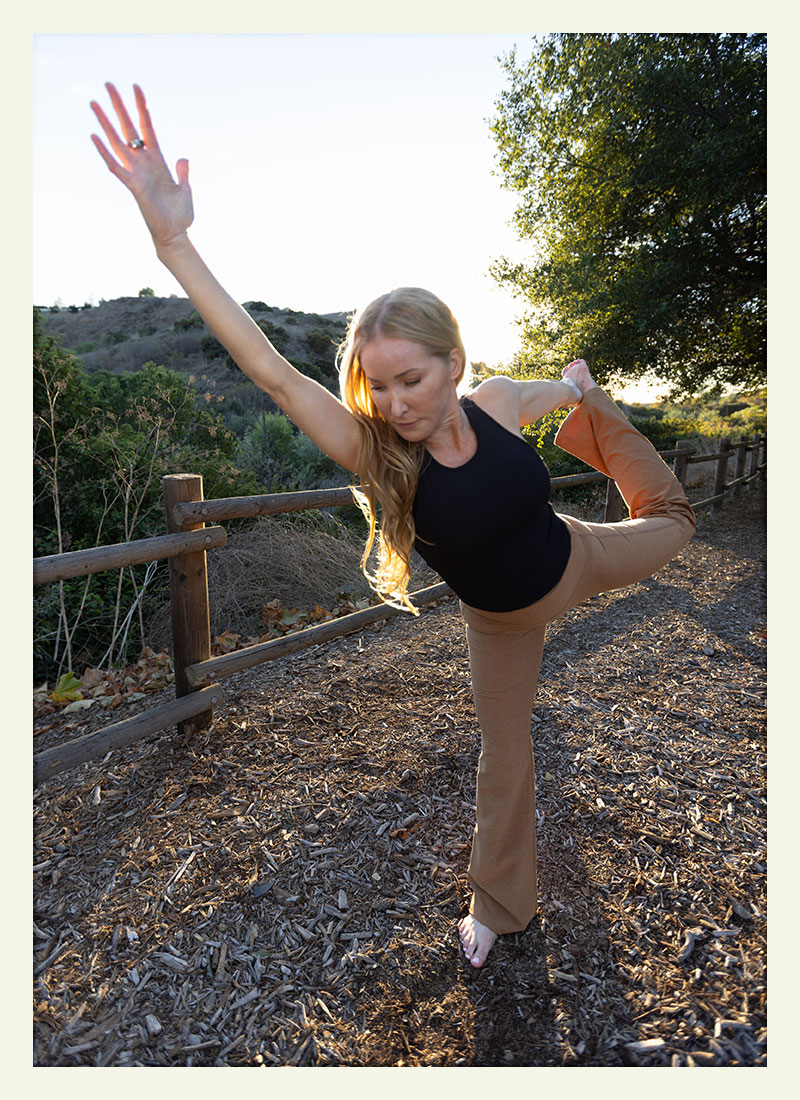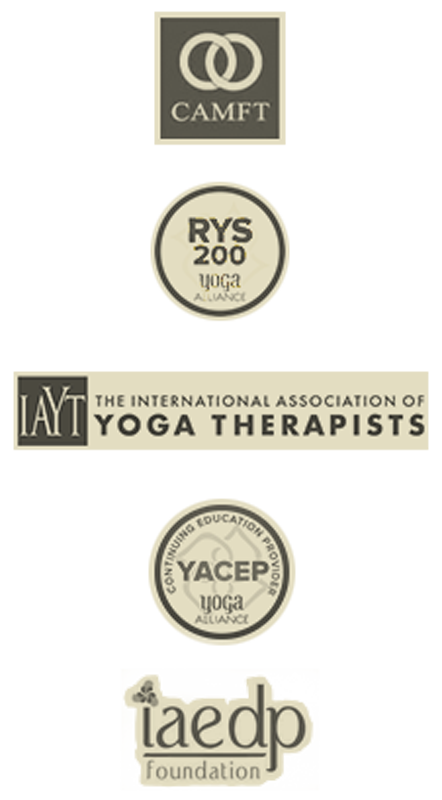
5 Hour Trauma Informed CE Course
If you are already a 200 Hour Yoga Teacher, or just want to learn about trauma informed yoga, we also offer a stand alone CE course. This program will run on June 29th, 2025 from 11AM to 5PM PT and will be 5 hours of CE instruction (registered with Yoga Alliance). This program also includes the 200+ page trauma informed yoga teaching manual. Join in studio or virtually! See details below:
Course Outline and Objectives
Understanding Trauma:
Obtain knowledge on the definition and types of traumas that your students may be suffering from and needing support with somatically. Gain a comprehensive understanding of trauma, including its causes, long and short-term effects on the nervous system, neurological and physiological impacts, and trauma’s impact on individuals’ physical, emotional, and psychological well-being.
Learn Trauma-Informed Principles:
Understand trauma-informed principles and practices, such as safety, choice, empowerment, and collaboration. Learn to create a safe and supportive environment for individuals with trauma histories.
Yoga and the Healing Process:
Understand how the yogic perspective on trauma and healing. Learn ways that yoga can support the parasympathetic nervous system, bringing it into a state of regulation through both somatic practices and co-regulation.
Obtain knowledge about the power of breath-work, mindfulness, and movement.
Safety and Trust in the Yoga Space:
- Apply Trauma-Sensitive Yoga Techniques Including:
- Learning how to adapt yoga practices to meet the needs of individuals who have experienced trauma.
- Familiarizing yourself with trauma-sensitive modifications, adjustments, and variations to make yoga classes inclusive and empowering for trauma survivors.
- Creating physical and emotional safety in your classes. Understanding the importance of boundaries and consent. Differentiating the role of the teacher as a facilitator rather than a healer.
Trauma-Informed Teaching Techniques:
- Learn mindful language choices and cues.
- Understand appropriate sequencing for trauma survivors.
- Develop the art of offering modifications and using props.
Recognize Trauma Triggers:
- Develop the ability to recognize and respond appropriately to trauma triggers that may arise during yoga classes.
- Learn strategies to create a trauma-sensitive space and facilitate a sense of safety and containment for participants.
Cultivate Body Awareness and Resilience:
- Discover techniques to help individuals develop body awareness, grounding, and self-regulation skills.
- Understand the connection between trauma and the body and learn yoga-based practices that support trauma healing and resilience.
Enhance Verbal and Non-Verbal Communication:
- Develop effective communication skills to establish rapport and trust with individuals who have experienced trauma.
Learn how to use compassionate language, active listening, and trauma-informed cues to create a supportive environment. Incorporate Mindfulness and Meditation Practices:
- Explore mindfulness and meditation practices as tools for self-regulation, stress reduction, and healing in the context of trauma.
- Learn how to guide trauma-sensitive mindfulness practices and integrate them into yoga classes.
- Gain Cultural Sensitivity and Awareness:
- Develop cultural sensitivity and awareness when working with individuals from diverse backgrounds who have experienced trauma.
- Understand the importance of inclusivity, respect, and cultural responsiveness in trauma-informed yoga teaching.
Self-Care for the Teacher:
Understand Self-Care and Vicarious Trauma:
- Recognize the importance of self-care and maintaining personal boundaries when working with individuals who have experienced trauma.
- Develop strategies to mitigate the risk of vicarious trauma and compassion fatigue as a yoga teacher.
- Ethical Considerations and Professional Practice:
- Explore ethical considerations specific to trauma-informed yoga teaching.
- Understand the importance of ongoing professional development, collaboration with other professionals, and self-reflection in maintaining ethical and effective trauma-informed teaching practices.
- Recognizing and managing vicarious trauma.
- Establishing personal boundaries and self-care routines.
- Identify when to seek supervision and support as needed.
Ethical Considerations and Collaboration:
- Understanding one’s scope of practice.
- Learn to work ethically with trauma survivors.
- Develop skills to collaborate with other professionals for holistic care.
**Prerequisites: Completion of a 200-hour Yoga Teacher Training to obtain CEs through Yoga
Alliance. All professionals welcome to attend to learn more about trauma informed yoga.
**Duration: 5 hours (comprising of in person or online training) CEUS are available with Yoga Alliance.
**Note: This training does not qualify participants to diagnose or treat trauma. Instead, it provides tools to offer yoga as a supportive practice within the boundaries of a yoga teacher’s scope of practice. Teachers are encouraged to maintain an ongoing relationship with mental health professionals for referrals and guidance as needed.
200 Hour Trauma Informed Yoga Teacher Training
For those looking for a yoga teacher trauma informed training, we also offer a 200-hour yoga teacher training that will allow students to become registered yoga teachers at the end of the program through Yoga Alliance. Our program includes all of the necessary components of a compressive 200-Hour Yoga Teacher Training with the added scope of using a trauma informed lens. In addition, the program will include trauma informed teaching sections for students to learn how to adapt classes to be trauma sensitive/trauma informed. Our program is approved through Yoga Alliance as a Registered Yoga School (RYS-200). The program cost includes 150-classroom learning led by Mary Ortenburger, LMFT, C-IAYT, RYT-500, YACEP, and 50 hours of asynchronous learning. In addition, all students will have access to materials throughout the program and their own student 200-hour teacher manuals, including a trauma informed manual as supplemental material (some of this material will be reviewed as well in the 200 hour training).
The next program is scheduled tentatively to be run in 2026, and dates to be announced soon.
Commonly asked questions:
Do I need yoga experience to join? No! All levels, including those new to yoga or without yoga experience, are able to join this 200-hour yoga teacher training program. You may join the program if you plan to teach after graduation, or if you are simply seeking to deepen your practice and knowledge about yoga and trauma informed yoga.
Cost: The cost of the trauma informed yoga teaching training is $3,000 if paid before July 1st, 2024 and $3,400 thereafter. If you wish to pay in installments, payments can be arranged so long as the full amount is paid by the start of the training or the end of the early bird pricing (if it applies).
Cancellation Policy: An applicant who withdraws from the program before the Start Date is entitled to a refund of all monies except for their non-refundable deposit of ($500). After the program begins, there will be no refunds. If the applicant withdraws from the program for any reason, the applicant will be responsible for paying the full tuition, regardless of any partial payments that have been made to date.
Attendance Policy: Graduation from our program requires the trainee’s attendance at all training sessions. Except for emergency situations, all absences must be approved in advance by the trainer. A maximum of 24 hours may be missed if arranged in advance and approved by the trainer. Certificates will not be granted until all training hours are accounted for.
Trainees make may up missed time by:
- Attending the same session in a subsequent training at no cost when and if a subsequent training is available.
- Paying to attend a private session with a trainer (at trainer’s current private training fee), in which a one-hour private session may make up for 1 hour of missed classroom time, given trainer has the availability to make up these hours for the student.




